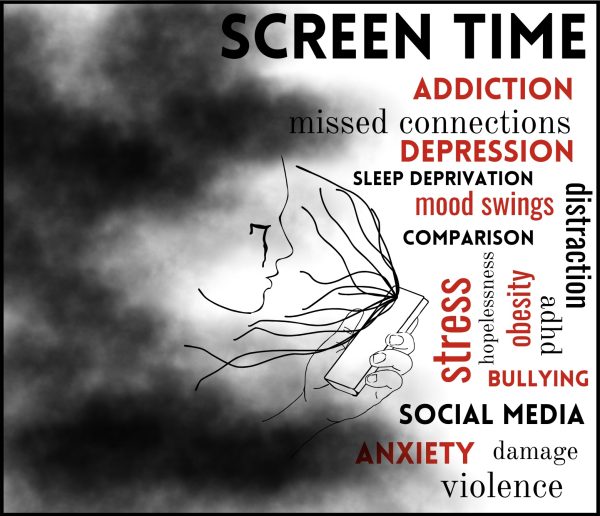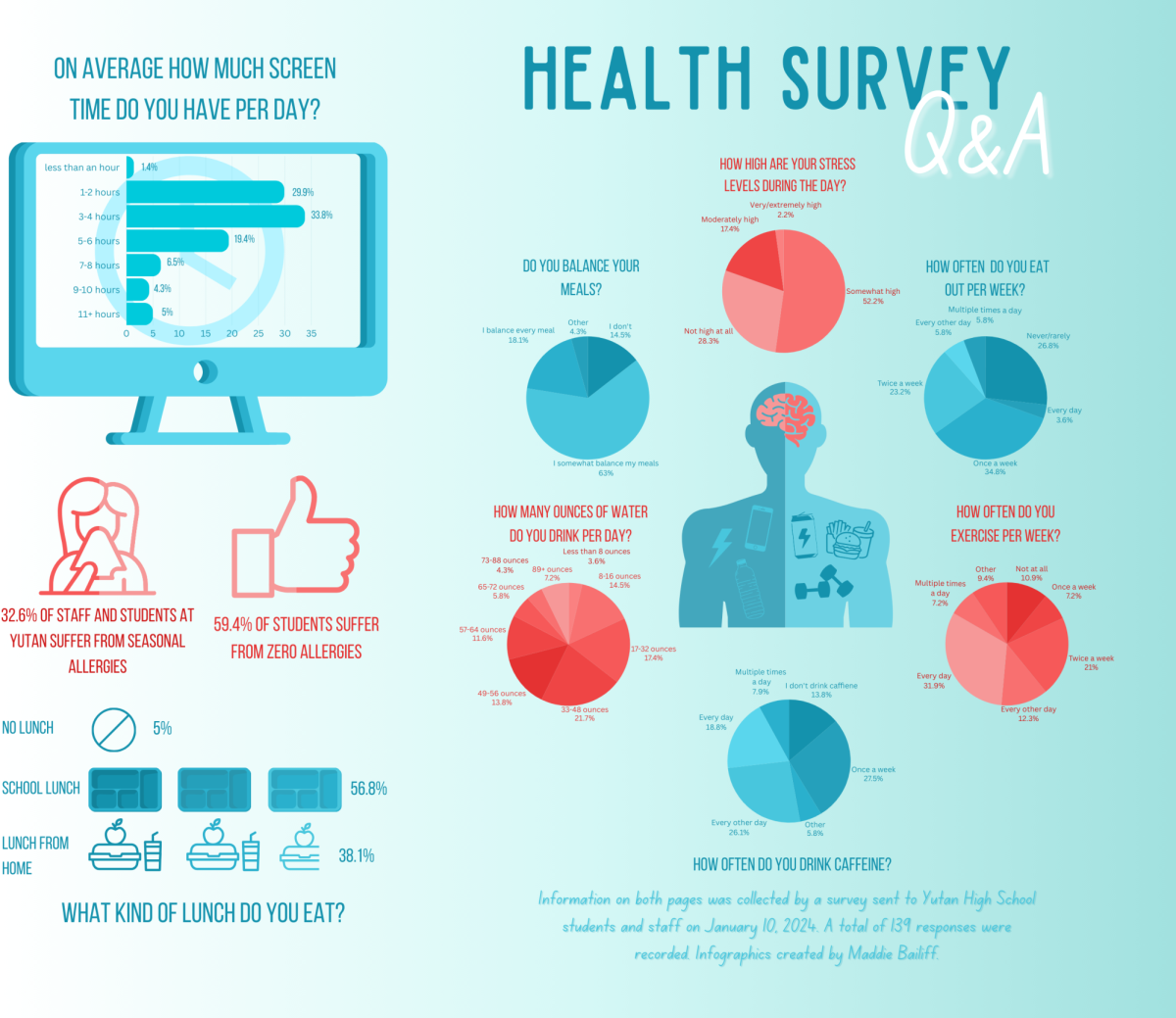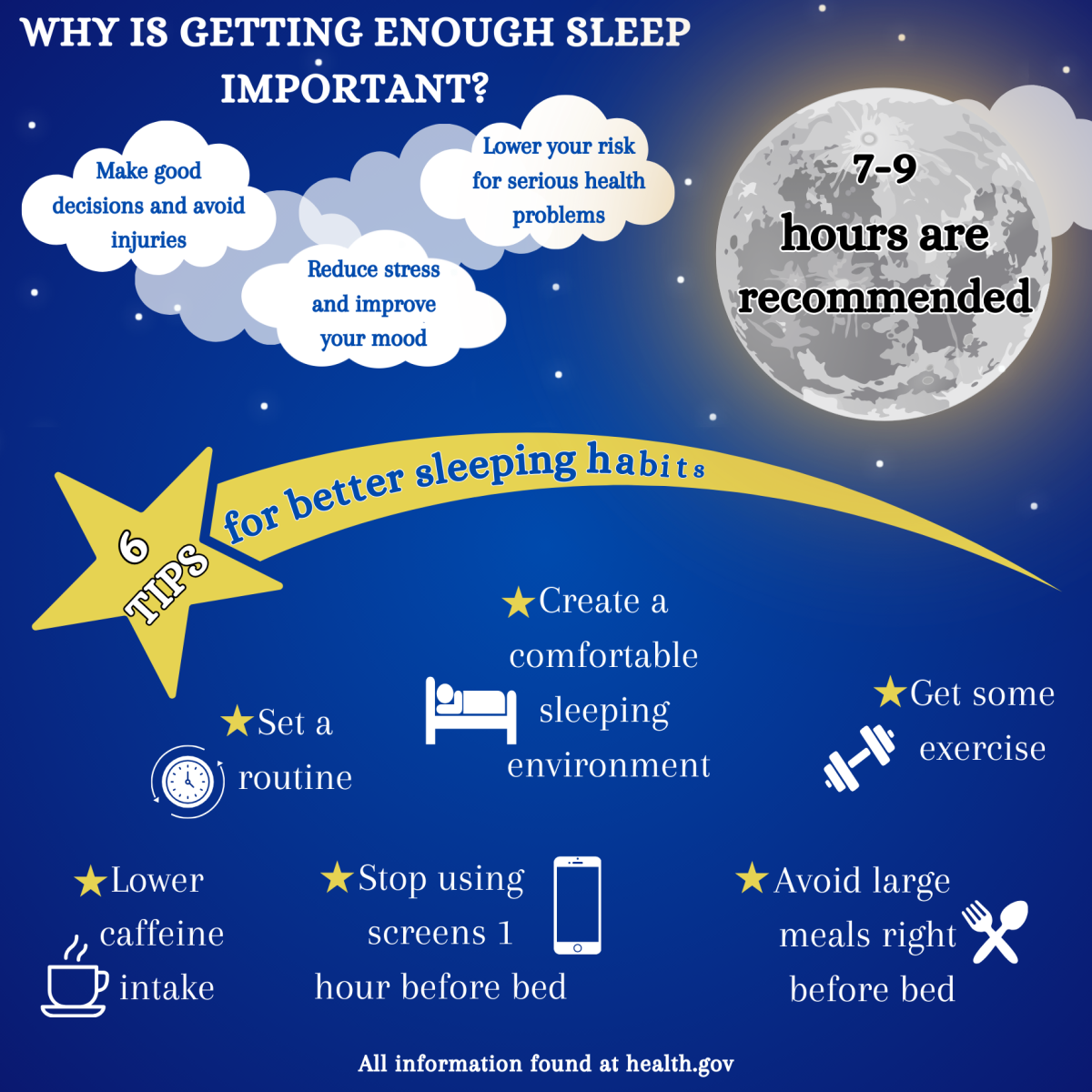Technology has become more and more prevalent and advanced over the past few decades in a variety of areas, bringing many benefits to our lives, like easier communication and widespread access to information. Yet however many benefits phones or other devices may bring to our daily lives, there are also several drawbacks related to time spent on devices. The average screen times for teens have been steadily increasing, and according to the American Academy of Child and Adolescent Psychiatry, the average screen time has reached nine hours per day, which includes any time spent on a phone or other device and watching T.V. Even at Yutan, almost 40 percent of the students in grades seven through twelve spend five or more hours on screens daily just in their free time. This high amount of screen time can lead to many negative effects, including less sleep, higher stress levels and fewer connections with things around us.

One negative effect excessive screen time can lead to is less sleep, as many people tend to go on their phones instead of going to sleep. According to the National Institutes of Health, being on screens for around an hour before bedtime can disrupt sleep in many ways, including blue light, exposure to violence, increased anxiety and notifications during the nights. Teenagers need sleep, especially as they are growing and even more so as they go through school and activities. According to the Centers for Disease Control and Prevention, this lack of sleep can lead to worsened performances in school and activities by decreasing attention. Many teenagers, including me, have experienced a time when they did not get enough sleep, most likely due to their phone, and had very low energy the next day. As students, we should prioritize our sleep over being on devices, and one simple solution could be charging our phones in a different room so it is not as tempting to be on them before bed.
Another negative effect is that screen time can lead to more procrastination and stress. Devices, especially phones, provide an easily accessed distraction, and without managing time spent on screens, people tend to spend more time on their devices rather than completing schoolwork or other tasks, causing them to fall behind. In turn, this could lead to higher stress levels and lower quality work because they rush to complete it. According to the National Institutes of Health, there is a connection between high screen time and high academic stress. Students never need another reason to stress, so eliminating some screen time could be beneficial to managing both time and stress. Simply turning off our phones when we need to get something done can make an improvement.
Finally, high screen times can take away from our daily lives by distracting us from meaningful connections with the people and things around us. As a student-athlete, I do not have a lot of time to spare, and if I were to spend it all on my phone or watching T.V., I would not be able to spend as much time with my friends or family. Technology can be such a big distraction that we miss out on the things going on around us and waste time that could be spent improving our lives and relationships. So, when we are around our friends and family, we should do our best to give them—not our phones—our attention.
Although the newest technology has many advantages, there are many negative effects that come along with it if used too much. Imagine the difference that could be made in many teenagers’ lives if we prioritize other areas of our lives over our screens. I’m not saying that you should cut out all screens from your life but be mindful of how much time you spend on them. We should prioritize living our lives in the real world, not through a screen.








